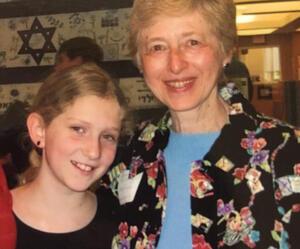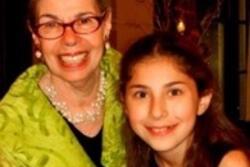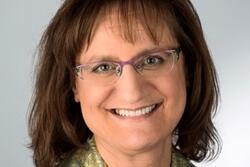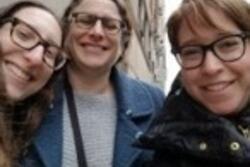Labels vs. Identity
Jewish. Feminist. Single. Religious. People are so multifaceted that labels often can’t capture the entirety of our experiences. I interviewed my great-aunt Esther about various elements of her complex identity and where they intersect; I mostly came away wondering if labels—namely “Jewish” and “feminist”—can really do our identities justice. As a Jewish, single, working woman in her 70s, I assumed my aunt would have a plethora of stories that fit a single narrative. But life is complex, and messy, and seldom fits into the boxes we create to try to make sense of it all.
Esther grew up in a religious household, regularly attending Hebrew school and observing all the Jewish holidays. The only observant Jew in her school, she had to miss class to fulfill her religious practices. Teachers and peers alike were judgmental of her Jewish identity, and she often felt ostracized as the sole Jew in her school. Nonetheless, Esther braved the judgment and never let go of her Judaism, later becoming a Hebrew school teacher. Judaism remained a key component of her identity, but as she grew up, she found herself as the only Jew in a growing number of spaces.
After teaching Hebrew school, she went on to work in non-Jewish environments, and felt isolated. Her Jewish identity was big part of her, but she felt like she had to “keep it quiet” to avoid seeming “other.” Though she experienced this isolation many years ago, many Jews still feel othered over their religious beliefs. I’ve enjoyed a Jewish education my entire life, and am used to being one in a sea of Jews, so to speak. However, when I venture into college, I’ll find myself in a far more religiously diverse setting. This is a very daunting and unfamiliar prospect, considering the Jewish bubble within which I’ve existed my whole life. I fear that because I wear my Judaism so openly on my sleeve, people will categorize me as “the Jewish girl,” and make assumptions about my life because I observe Shabbat and my mother’s a rabbi. While I’m excited to expand my social circles, it’s definitely intimidating to transition from being part of a Jewish majority in my high school, to a Jewish minority in college. Forty years later, my aunt’s experience is still deeply resonant.
Esther never identified as a feminist, not because she was against the movement, but because she’d never thought about it. She believed in equality but didn’t grow up with activism as part of her life. In the workplace, Esther was used to men being in charge. Nobody ever outright told her that she was less-than, but nobody ever supported her growth as a professional either. If she had a good idea—of which she had many—she had to brainstorm, research, and execute it on her own.
She recalls a particular project where her male colleagues completely overrode her ideas and opinions despite their clear validity. She went to her supervisor to request a project transfer, but he dismissed her concerns and told her to stick it out. Esther’s story seems like it could have believably happened this year, which makes me wonder how much gender equality has really progressed. In the wake of the Me Too movement, I’d hope that women would feel comfortable combating workplace sexism, but it’s clear that, while some progress has been made, we still have ways to go.
At the end of our conversation, I asked Esther if she identifies as a feminist today, and she said no. In her eyes, in order to qualify as a feminist, one needs to be outspoken, and a leader. She doesn’t see herself that way, despite wholeheartedly supporting gender equality. But truthfully, there is no right way to be a feminist. Equity is at the heart of the movement, not volume. Sometimes, just by proving yourself as a capable, female equal, as Esther did time and time again, you relay the strongest message about the importance of equality. For some, marching on the street is the most meaningful way to express their feminism, but for others it may be quietly demonstrating equal ability on a day to day basis. Esther might not identify with the label “feminism,” but she’s certainly a feminist role model to me.
This article is also published on Fresh Ink for Teens.
This piece was written as part of JWA’s Rising Voices Fellowship.








Awe, this is so sweet!